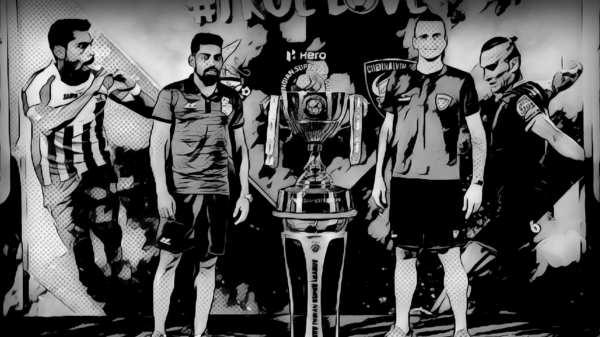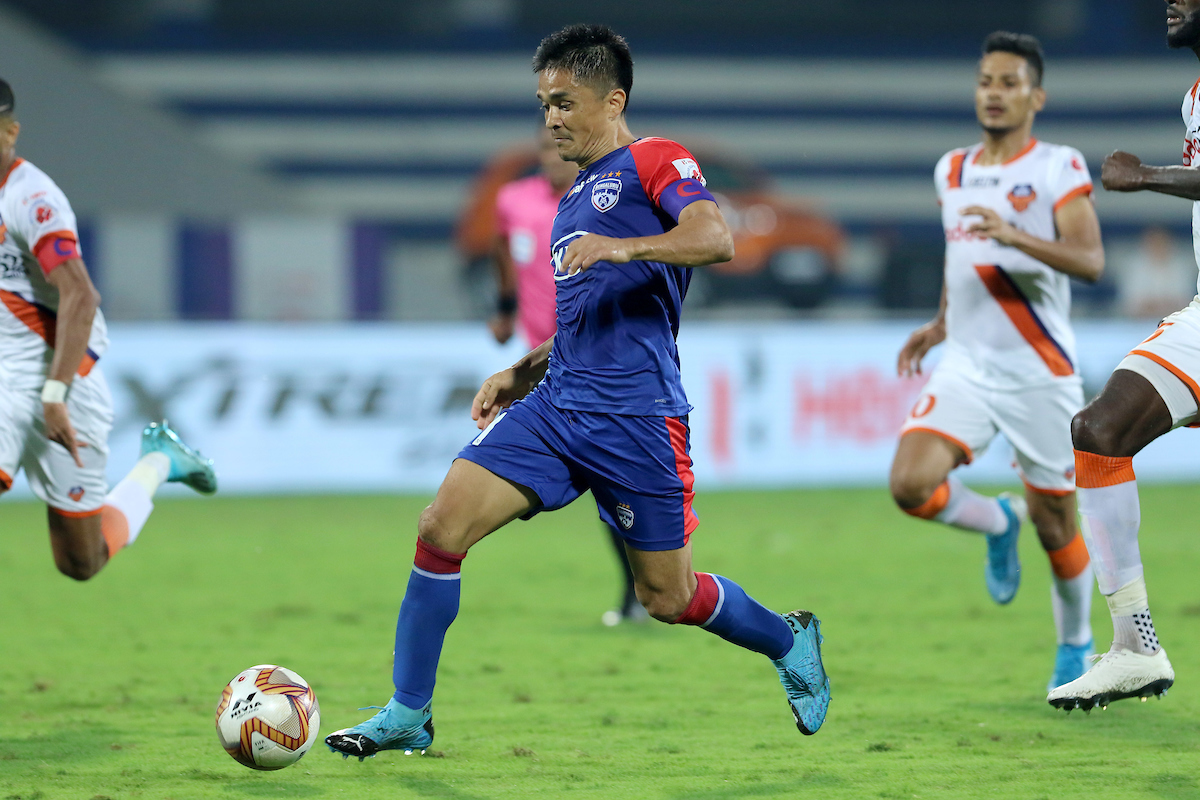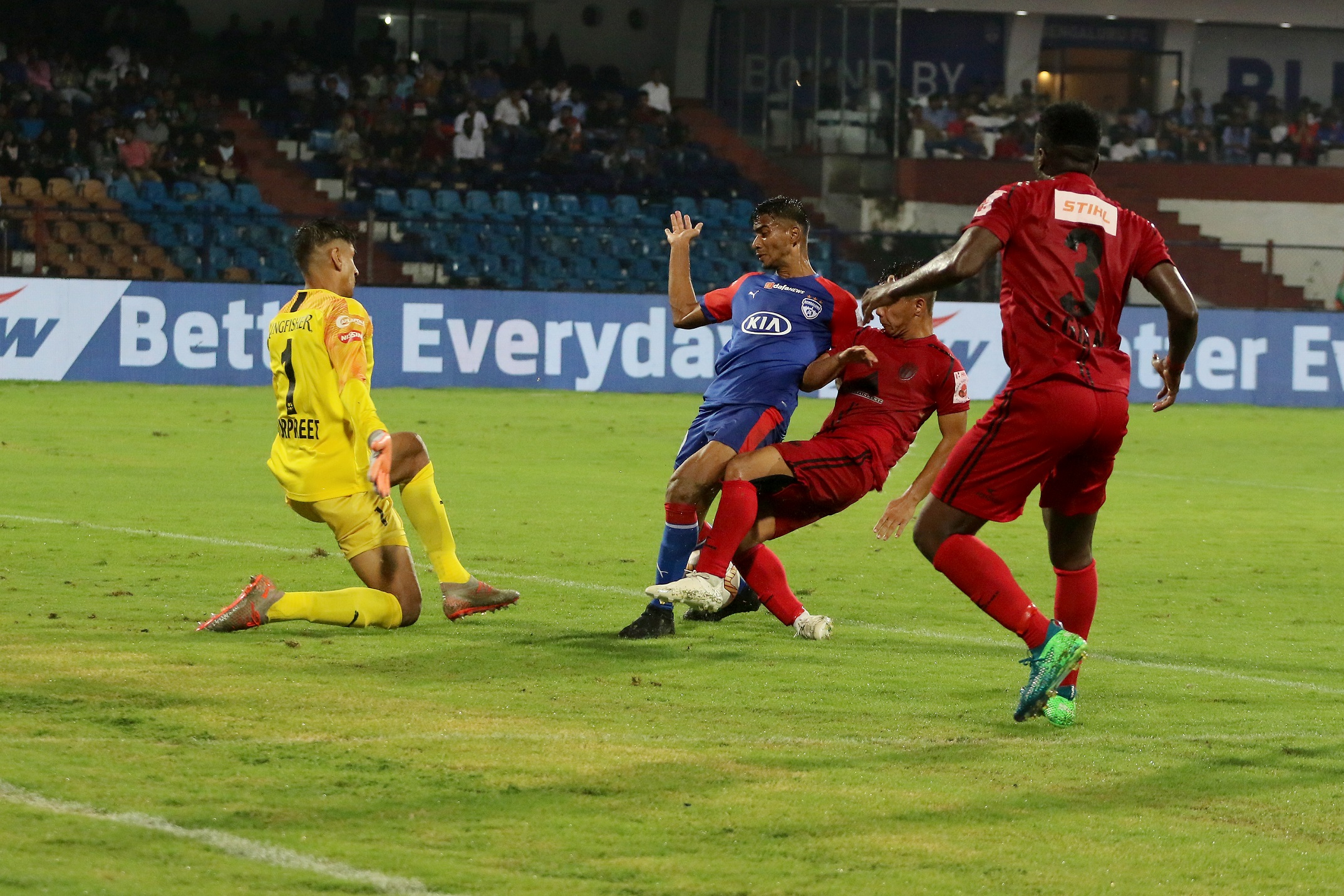With the Indian Super League kicking off soon, we interviewed Chris Punnakkattu Daniel to give us some insight. Chris is a German based Indian football Journalist, Football & Media Consultant and Sports Media Professional with experience in Indian football since 1999. Follow him on Twitter @CPDaniel, and visit his website ChrisPD.de
The situation of Indian football is such that we now have a popular tournament, while also possessing a traditional domestic league format. Without going into too many details of that well documented topic, isn’t there a conflict here and is there any possibility of a collaboration in the future?
No, there is no conflict at the moment. The Hero Indian Super League will be a tournament running over a span of eight weeks. It is meant to promote the cause of football in the country with the help of renowned international stars, top domestic talents, celebrities and a key factor in entertainment.
Indian football needed a new lifeline to raise the awareness of football in the country. The I-League didn’t attract too many fans, media and sponsors and it looks like things are not moving forward, although we have seen some great developments with teams like Bengaluru FC and Shillong Lajong FC setting new trends in the market. The ISL has already created a positive buzz in India and even around the world. Indian football is a big topic and more important it has turned into a big topic within India!
Changes to a system will always go along with scepticism and prejudices. We have to wait and see how the first ISL edition will proceed and what the experiences will be from the inaugural season.
We shouldn’t see the ISL and I-League as rival leagues. A collaboration is definitely possible after a few seasons. The ISL could become the 1st Division with relegation, while the I-League could turn into the 2nd Division. We should be open to new ideas as all of us have one goal: The improvement and advancement of Indian football!
The Indian Super League is a three month tournament; development of Indian Football requires a 10+ year plan. Is there a risk that teams & management might fail to address the issues beyond the duration of the tournament and focusing on activity solely during that three month period?
The ISL teams will work according to the league schedule and they have their planning for the first season. And there will be enough work for the second season, if the inaugural league turns into a successful one. A proper execution of the ISL will be crucial to transfer the hype and interest to the I-League, local leagues, academies and everything related to football in India. The fate of Indian football doesn’t solely depend on the duration of a competition like the ISL – it will rely on what we learn during these three months and how we utilize the ISL for the overall improvement of the beautiful game in India.
MORE READING
Following on from that, what are your views on the fact that this is a short tournament, coaches being assigned on short contracts, players similarly, and thus no real long-term planning taking place?
I would like to refer to my answers to your last questions. We shouldn’t see the ISL as the one and only solution to take Indian football to new heights. It’s a vital part of an overall process. Having the ISL does not mean we can sit back and relax. We can’t stop working on the other clubs and academies around the country. The ISL is just a much needed impetus to get the public recognition and interest in a game, which is the most popular sport around the world. Indians need to realise that progress starts at their own backyard. Indian football can only improve and reach the goals set, if there is a broad interest and support in the game in the very own country. Sometimes you need extraordinary solutions to reach your goals and to push things the right way.
Yes, the ISL teams and management are focusing on a three-month long tournament. But the benefits for Indian football in general will be massive, if things are done properly. You need to see the progress and hype on and off the field coming in through the ISL; it will be a huge learning experience for Indian football – be it for the players, officials, media, fans and sponsors.
But the real work will start in the aftermath of the first season. We need to transfer the expertise and hype to our daily work. That’s were we need to take advantage of the ISL. It could be a door opener for a great future, if we learn the lessons and use them to take Indian football forward.
The Asian Football Confederation has prescribed rules that restrict teams to naming only four foreign players in their squad, allowing improvement of the national team as a result. The Indian Super League isn’t restricted by these rules, with seven foreigners being allowed. There is the possibility that these seven foreigners will play the bulk of games; could this thus have a negative impact on development of the domestic players and consequently the national team?
The AFC’s 3-1 rule does apply for continental championships namely the AFC Champions League and the AFC Cup. The All India Football Federation has implemented the same rules to the I-League. It’s good to have such a rule in a regular league like the I-League to protect and foster own domestic talents. But we have to differentiate in the case of the ISL.
Yes, there is a chance that the foreigners in the ISL will play most of the games. But I don’t see a negative effect on the domestic players and even the national team. Quality players means quality training and quality matches. Our very own players will improve and learn a lot from the daily work with the star foreigners. It is always good to have as much playing time as possible and I hope our boys will be able to convince the coaches at the various teams to field them in the starting line-ups. I’m not too much into badmouthing things before we have any justified reason to do so.
The MLS has grown and continues to do so across the country as there are constant plans made for expansion that are effectively followed through. What are the chances of the ISL expanding into more parts of the country?
An expansion must be part of the mid- and long-term plans for the Indian Super League. But first of all the ISL need to be successful in the first season and it must be a solid foundation for the sequencing seasons. The second season itself could see new franchises entering the competition. There are many interesting cities which could have an own ISL franchise if they fulfil the certain criteria to do so. Bangalore, Hyderabad or Chandigarh are just three cities I would like to name. But an expansion must be done with proper and strategic planning. There is always the danger of an overkill.
Expanding on that topic, one feels the possibility of a second edition of the tournament rest on the success of this inaugural edition. Have the organizers provided any guidelines or rules that require teams to participate in another edition? Or do we go through the whole process all over again?
A second edition will always depend on the success of the inaugural one. That rules doesn’t apply only to the ISL. The focus is at the first season at the moment. There is a lot of work in the pre-run for season one and even more work during the tournament. IMG-Reliance will have their plans for the second season and we will get to know them after the completion of the first season.
Although it’s fantastic that some experienced coaches have joined up to take control of teams in the Indian Super League, is the lack of Indian coaching staff a bit concerning, given that this too is a vital area of development required to improve the sport in the country?
Well, it would have been good to see Indian coaches being part of the various coaching staff, but I wouldn’t put it as a negative. I can only urge once again to analyse such things in an overall context. We have to start somewhere and it’s good to have some good foreign coaches in the country, which will transfer their knowledge to the players. Bringing in some Indian coaches to the teams would be something for the second season. Some Indian coaches could work as assistant managers to the foreign coaches as well.
But if we talk about the future of Indian football we need also to realise that the coaches of the future will be the current footballers. The Indian players of these days will learn a lot from training under the guidance of foreigners like Peter Reid at Mumbai City FC, Antonio López Habas at Atlético de Kolkata, Zico at FC Goa or Ricki Herbert at NorthEast United FC. And our boys will transfer the knowledge to the Baichung Bhutia’s, Sunil Chhetri’s and Subrata Paul’s of the future. You have asked me about the benefit for Indian football and you see that the future benefits are made out of many aspects of the game which might not be too obvious.
Moving away from the serious aspects of the tournament and to something more positive, who according to you has assembled the best squad, taking into account the domestic players as well?
All the teams have done their best to build strong squads with the aim to win the first-ever Indian Super League title. I think Mumbai City FC has most probably managed to assemble the best and well-balanced team with players like Freddie Ljungberg, Nicolas Anelka, Manuel Friedrich, Subrata Paul and Lalrindika Ralte. Kerala Blasters FC also looks very strong with David James, Michael Chopra, Nirmal Chettri, Renedy Singh, etc. Atlético de Kolkata and Chennayin FC aren’t that bad too. It will be an interesting affair. I think one of these teams will be see lifting the trophy. Let’s wait and see… Football is a beautiful game with many surprises and unexpected turnarounds.
We have a Talent Radar feature on our site that focuses on youngsters in the World of football; who according to you are the most exciting young prospects participating in the tournament?
It wouldn’t be fair to single out one specific youngster. There are various promising talents in the ISL. Manandeep Singh, Narayan Das, Alwyn George and Mandar Rao Desai stand out from the list of youngsters with their experience and call-ups to the Indian national team. Holicharan Narzary, Abhishek Das, Jagroop Singh, Seminlen Doungel and Sandesh Jhingan are just a few names from the long list of Indian talents. I’m confident that the ISL will be a great platform for all the youngsters at the eight franchises and that these players will gain a lot from the ISL experience.
Questions asked by Sami Faizullah, answered by Chris Punnakkattu D.

























































